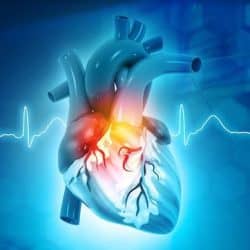11111
Mediclave - Tracks
- Home
- Mediclave - Tracks

CARDIOLOGY
The area of medicine known as cardiology is dedicated to the identification, management, and avoidance of conditions affecting the heart and blood vessels. It covers a broad spectrum of illnesses, such as arrhythmias, heart failure, and coronary artery disease. Cardiologists evaluate the health of the heart using a variety of diagnostic techniques, including stress tests and echocardiograms. Treatment options, including as medicines, minimally invasive treatments, and surgical interventions, have been greatly enhanced by technological and research advancements.
DERMATOLOGY
The medical specialty that focuses on identifying and treating conditions affecting the skin, hair, and nails is called dermatology. The disorders that dermatologists treat include psoriasis, acne, eczema, and skin cancer. To control and enhance skin health, they employ a range of strategies, from sophisticated surgical operations to topical therapies. In order to improve look, dermatology also includes cosmetic procedures like injectable and laser treatments. In general, dermatologists are essential in supporting skin health and treating issues related to both health and appearance.


OPTHOMOLOGY
The area of medicine known as ophthalmology is devoted to the identification, management, and avoidance of conditions affecting the eyes. Ophthalmologists specialize on a variety eye problems, such as refractive defects like myopia and hyperopia, retinal diseases, cataracts, and glaucoma. They do anything from complex surgery like cataract extraction and laser treatments to prescription glasses and contact lenses. Ophthalmology includes research and teaching to enhance eye health in addition to medical and surgical care. All things considered, ophthalmologists are essential to maintaining vision and improving quality of life.
ENDOCRINOLOGY
The area of medicine known as endocrinology is concerned with the endocrine system, which includes the glands that generate the hormones that control different body processes. Diabetes, thyroid abnormalities, problems with the adrenal glands, and hormonal imbalances are among the ailments that endocrinologists diagnose and treat. They evaluate hormone levels and gland function using a variety of diagnostic techniques, such as imaging investigations and blood testing. Medication, hormone replacement therapy, and lifestyle changes are some possible treatment modalities.


GASTROENTEROLOGY
The area of medicine known as gastroenterology is dedicated to the diagnosis and management of conditions affecting the esophagus, stomach, intestines, liver, gallbladder, and pancreas. Gastroenterologists treat a variety of illnesses, including malignancies of the digestive tract, liver ailments, inflammatory bowel disease, and gastroesophageal reflux disease (GERD). To view the gastrointestinal tract and evaluate problems, they use diagnostic techniques including colonoscopy and endoscopy. Medication, dietary modifications, and occasionally surgery are available forms of treatment.
PATHOLOGY
Through the analysis of tissues, organs, body fluids, and autopsies, pathology is the area of medicine that investigates the origins, characteristics, and consequences of illnesses. Through microscopic exams and laboratory sample analysis, pathologists play a critical role in illness diagnosis. They help inform treatment choices by pointing up anomalies and offering information on how illnesses develop. Clinical pathology, forensic pathology, and surgical pathology are just a few of the subfields that fall under the umbrella of pathology.


GYNECOLOGY
The area of medicine known as gynecology is concerned with the condition of the female reproductive system, which includes the uterus, ovaries, fallopian tubes, and vagina. Sexually transmitted infections, pelvic discomfort, menstrual abnormalities, and reproductive problems are just a few of the ailments that gynecologists detect and treat. Additionally, they offer preventative care, which includes standard tests like mammograms and Pap smears. Gynecologists can also conduct operations including laparoscopies and hysterectomies.
PEDIATRICS
The medical field of pediatrics is devoted to the treatment and well-being of newborns, kids, and teenagers. From minor illnesses to chronic disorders, pediatricians diagnose and treat a wide range of conditions. They give immunizations, keep an eye on growth and development, and offer advice on healthy eating and living. Pediatrics has a critical role in improving the general well-being of young patients as they grow and develop by attending to their physical and emotional health.


NEPHROLOGY
The area of medicine known as nephrology is dedicated to the identification and management of kidney abnormalities and diseases. Chronic kidney disease, kidney stones, hypertension, and electrolyte abnormalities are just a few of the many problems that nephrologists treat. They may supervise procedures like dialysis or kidney transplants in addition to doing diagnostic tests like blood and urine analyses. Since the kidneys are essential for removing waste and regulating the body’s fluid and electrolyte balance, nephrology is essential for preserving general health.
NEUROLOGY
Neurology is the branch of medicine that focuses on theThe field of medicine known as neurology is dedicated to the diagnosis and management of conditions affecting the neurological system, which includes the brain, spinal cord, and peripheral nerves. Numerous illnesses, including epilepsy, multiple sclerosis, Parkinson’s disease, stroke, and neuropathies, are treated by neurologists. They evaluate neurological function and create treatment regimens using a variety of diagnostic techniques, such as MRI and EEG. Understanding intricate brain processes and treating illnesses that can have a major negative influence on quality of life are two areas in which neurology is essential.


ONCOLOGY
The area of medicine known as oncology is dedicated to the identification, treatment, and control of cancer. Together, patients and oncologists create customized treatment regimens that may involve immunotherapy, radiation therapy, chemotherapy, and targeted treatments. Along with managing pain related to cancer and its therapies, they also keep an eye out for any possible side effects. Medical, surgical, and radiation oncology are just a few of the subspecialties that fall under the umbrella of oncology and concentrate on distinct facets of cancer treatment.
EMERGENCY MEDICINE
The area of medicine known as emergency medicine is dedicated to the prompt diagnosis and management of severe illnesses and injuries. From respiratory distress and serious infections to cardiac problems and trauma, emergency physicians are prepared to treat a broad spectrum of urgent medical situations. They work in emergency rooms, making quick diagnoses and starting treatments that can save lives. Emergency care places a strong emphasis on making decisions quickly and working as a team, frequently including multiple specialists. All things considered, this field is essential to provide patients in urgent situations with prompt care that aims to stabilize their condition and enable additional therapy.


HEPATOLOGY
The study, diagnosis, and treatment of liver illnesses and disorders are the main goals of the medical specialty known as hepatology. Liver cancer, cirrhosis, fatty liver disease, and hepatitis are among the disorders that hepatologists treat. To evaluate liver function and choose the best course of treatment, they use diagnostic techniques such imaging examinations, liver biopsies, and blood testing. Understanding liver health and dealing with problems relating to alcohol consumption, metabolic diseases, and viral infections requires an understanding of hepatology.
RHEUMATOLOGY
The area of medicine known as rheumatology is dedicated to the diagnosis and management of autoimmune illnesses and musculoskeletal conditions. Rheumatologists treat a variety of ailments, such as fibromyalgia, gout, lupus, and arthritis. To find underlying problems, they assess symptoms, conduct physical examinations, and employ diagnostic procedures including imaging investigations and blood work. To reduce symptoms and enhance quality of life, treatment methods may involve prescription drugs, physical therapy, and lifestyle changes.


RADIOLOGY
The medical profession of radiology employs imaging methods to identify and treat a range of illnesses. In order to visualize the inside architecture of the body, radiologists use technologies including MRIs, CT scans, ultrasounds, and X-rays. They examine these pictures to find anomalies, direct medical interventions, and support surgery. Interventional radiology, which uses imaging guidance to perform minimally invasive procedures, is another subspecialty of radiology.
SURGERY
Surgery is a medical specialty that uses surgical techniques to diagnose, treat, and manage illnesses and injuries. From simple outpatient treatments to intricate surgeries involving prolonged hospital stays, surgeons carry out a broad range of operations. General surgery, orthopedic surgery, cardiac surgery, and neurosurgery are just a few of the specializations that fall under this umbrella and concentrate on different body parts or ailments. Open surgery and minimally invasive methods like laparoscopic treatments are examples of surgical techniques.


GERIATRICS
The area of medicine known as geriatrics is dedicated to the treatment of elderly patients, addressing the particular medical and social problems that come with growing older. Geriatricians emphasize a comprehensive approach to care and specialize in managing a variety of chronic diseases, cognitive decline, and functional limitations. Through thorough evaluations, individualized treatment plans, and preventative actions, they seek to improve quality of life.
PULMONOLOGY
The area of medicine known as pulmonology is dedicated to the diagnosis and management of conditions affecting the respiratory system. Lung cancer, pneumonia, asthma, and chronic obstructive pulmonary disease (COPD) are just a few of the many illnesses that pulmonologists treat. To assess lung health, they use a variety of diagnostic techniques, including imaging scans, bronchoscopies, and pulmonary function testing. To enhance breathing and general quality of life, treatment strategies may involve prescription drugs, respiratory therapy, and lifestyle changes.

